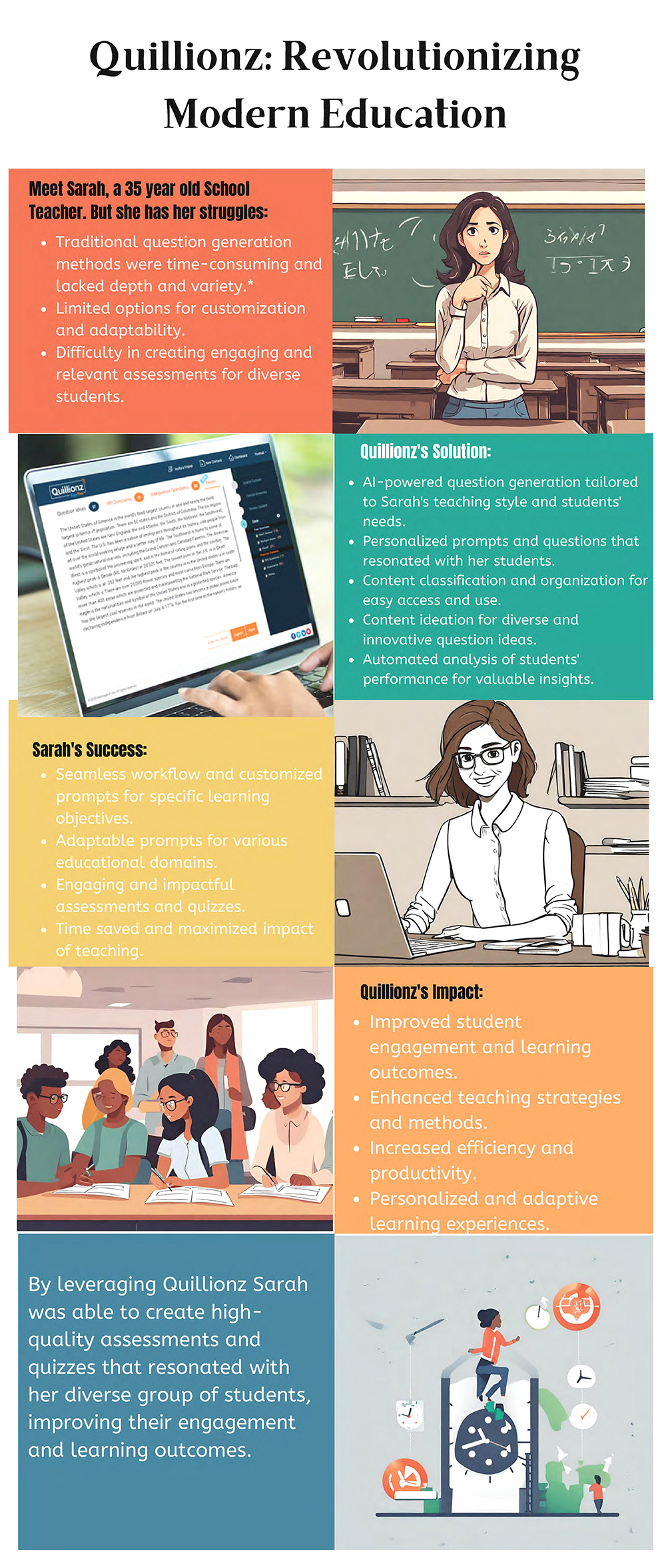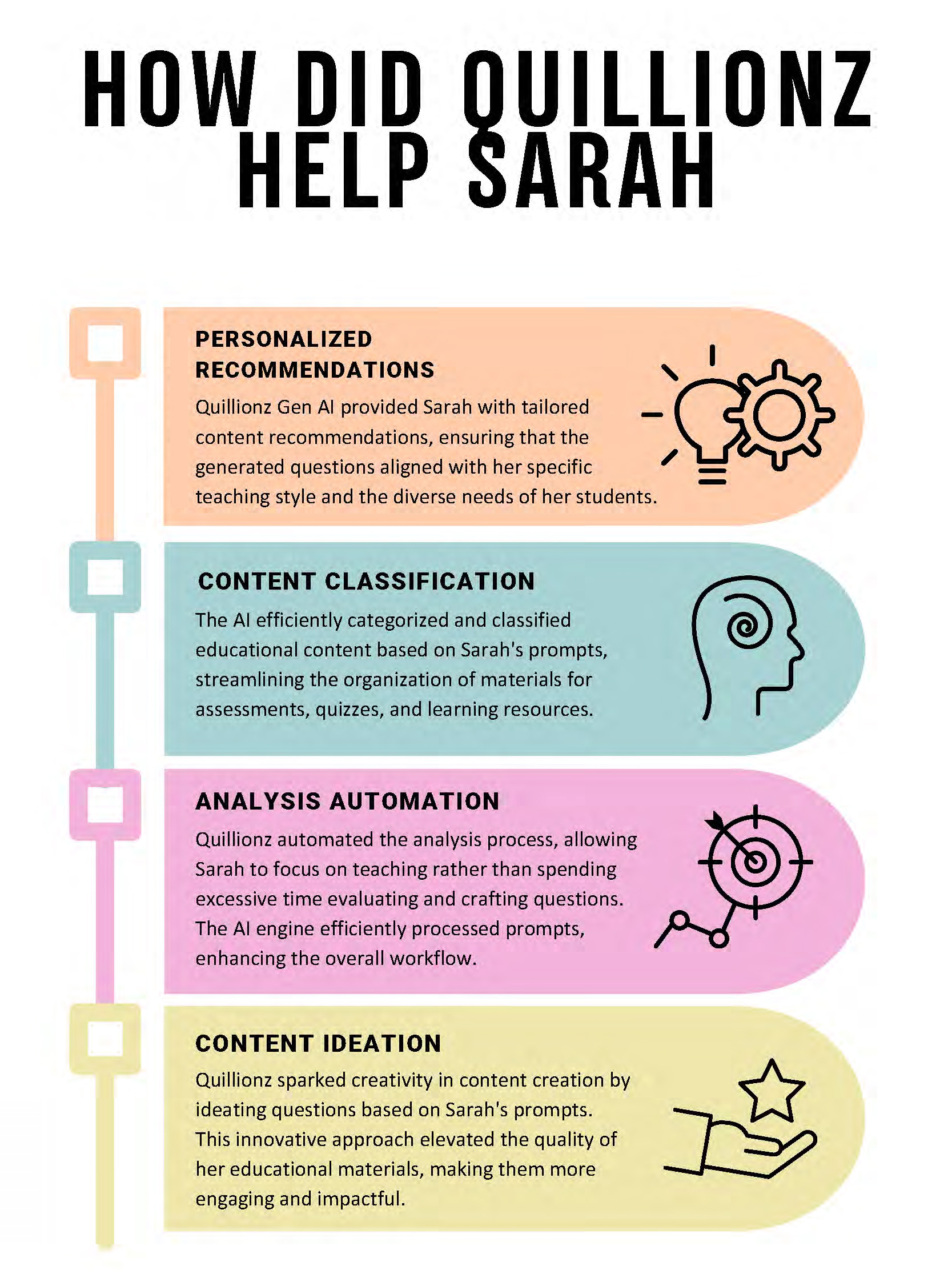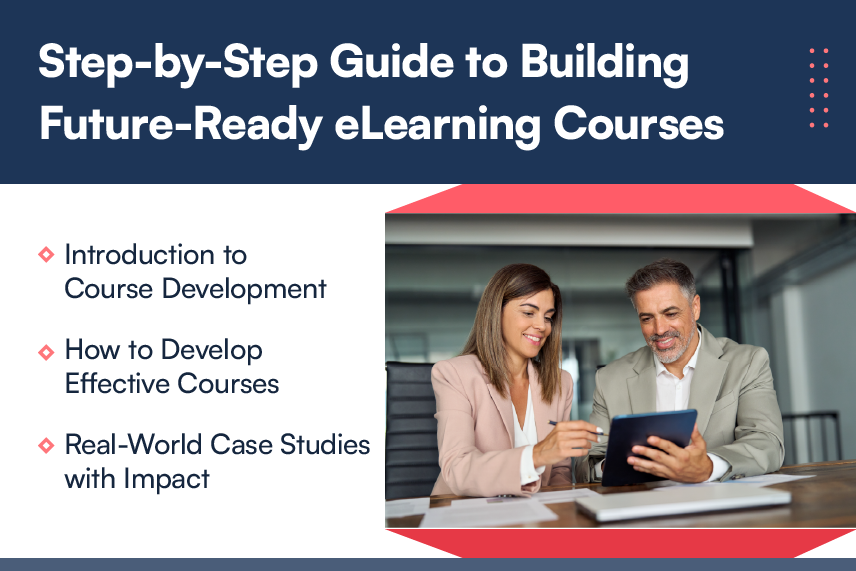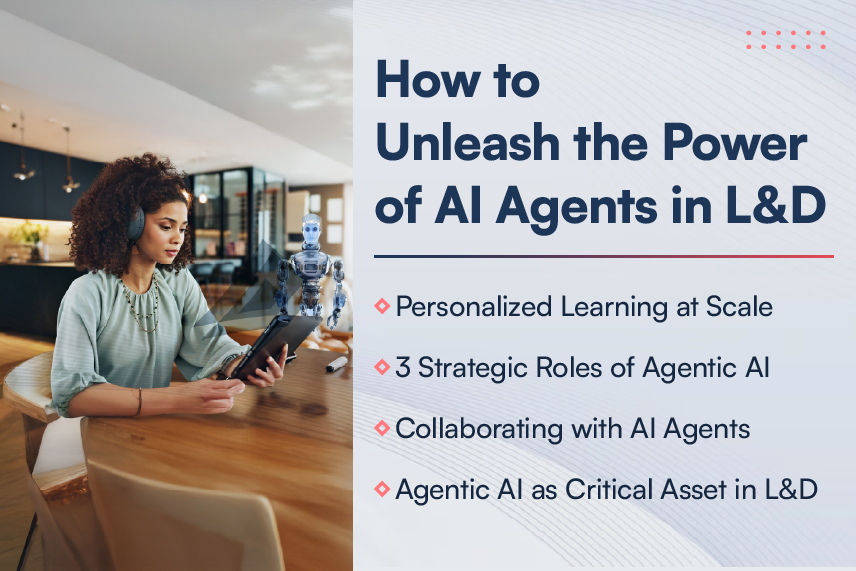
In the dynamic landscape of education, the integration of Artificial Intelligence (AI) has opened up new horizons. Quillionz, an AI-driven platform, stands at the forefront, promising educators and content creators an innovative approach to question generation. However, to truly harness the power of Quillionz, one must master the art of prompt engineering. This blog delves into the intricacies of crafting perfect prompts to generate top-tier quizzes, assessments, and notes, thereby maximizing Quillionz’s potential for impactful learning and knowledge creation.
Mastering the Craft: From Novice to Expert – Strategies and Techniques for Effective Prompt Engineering
Mastering the craft of prompt engineering involves adopting effective strategies. A novice approach might begin with broad overviews, providing the AI engine with a general understanding of the desired content. However, refinement is key. As educators become more adept, they learn to leverage keywords, synonyms, and related concepts to enhance the specificity of prompts.
Advanced techniques come into play as educators ascend from novice to expert. The use of question prefixes, such as "Why" or "How," can elicit deeper understanding from the AI. Introducing negation in prompts can stimulate critical thinking, while the incorporation of humor or analogies can make the learning experience more engaging.
Enhancing Prompt Efficiency with Machine Learning in Quillionz
Quillionz transcends basic prompt generation with a sophisticated machine learning framework that empowers educators to craft highly targeted and efficient assessments. Here’s the technical foundation:
- System Prompt Analysis: Machine learning dissects pre-designed system prompts, enabling the construction of precise prompts aligned with specific learning objectives and content elements.
- Dynamic Prompt Templates: Leveraging user-defined parameters and machine learning optimization, Quillionz personalizes prompt templates, ensuring seamless integration and dynamic generation based on individual preferences and teaching styles.
- Nuanced Language Processing: By delving into the intricacies of language, the machine learning model ensures prompts accurately reflect intended meaning, capturing subtle semantic nuances and contextual specificities.
- Adaptive Learning: The system continuously learns from user interactions and prompt refinements, adapting to individual preferences over time. This personalization delivers prompts that consistently align with each educator’s unique approach.
- Context-Aware Prompt Formulation: Machine learning analyzes prompts in relation to provided content and learning objectives, automatically tailoring questions to the intended context. This guarantees assessments accurately target the desired knowledge or skill.
- Advanced Semantic Matching: Utilizing sophisticated algorithms, the system identifies relationships between words and phrases, ensuring prompts seamlessly connect with both the broader context and intricate semantic details within the content.
- Iterative Improvement: The machine learning model continuously refines its prompt processing capabilities based on user input, leading to progressively more accurate and efficient question generation over time.
Quillionz empowers educators to move beyond generic prompts and embrace a future where machine learning personalizes the prompt engineering process, enabling the creation of highly effective and targeted assessments.
Leveraging Quillionz’s Features: Tailoring Prompts for Optimal AI Collaboration
Quillionz, with its unique features, offers educators a powerful tool for prompt engineering. Domain-specific knowledge integration and L1 to L3 question generation are among its standout capabilities. Educators can tailor prompts to leverage these features effectively, ensuring that the AI engine understands and incorporates domain-specific nuances and language intricacies.
Engineering Perspective and Solution Practices
As part of its roadmap, Quillionz Enterprise aims to enable transparency in prompt design, which might empower users with an engineering perspective. This transparency will provide users with insights into the inner workings of prompt engineering, fostering a deeper understanding of how their input influences AI-generated outcomes.
Users will have the ability and freedom to edit prompts, further enhancing the customization and refinement of the AI-generated content. This interactive prompt editing feature aligns with the user-centric approach, allowing educators to fine-tune prompts according to their preferences and requirements.
- Prompt Template Engine: Quillionz is set to introduce a prompt template engine, allowing educators to create standardized templates for prompts. This feature enhances efficiency, streamlining the prompt creation process and ensuring consistency in the generated content.
- AI Orchestration: The integration of AI orchestration within Quillionz will enable the platform to dynamically adjust to user input. This adaptive orchestration will enhance the responsiveness of the AI engine, ensuring that it aligns more closely with the unique prompt variations introduced by educators.
- Best Practices: Quillionz will offer a repository of best practices in prompt engineering. Educators can benefit from established guidelines, tips, and examples to optimize their prompt creation process, fostering a community-driven approach to effective prompt engineering.
Quillionz’s GPT-Powered Question Generation: Empowering Educators
Quillionz, powered by a refined GPT model, goes beyond simply generating diverse question types. It leverages the inherent strengths of GPT to empower educators with unique capabilities and address common user queries:
Deep Understanding and Tailored Questions
Quillionz’s GPT model processes text more like a human, understanding nuances and context beyond keywords. This deeper understanding allows it to generate questions that are highly relevant to the specific content and learning objectives provided by the educator. Educators, with their subject expertise, select content and define objectives. Quillionz then suggests various question types and variations, allowing educators to choose and refine the ones that best align with their assessment goals.
Dynamic Difficulty and Personalized Learning (Who Takes the Call?)
GPT’s ability to analyze content at multiple levels enables Quillionz to generate questions with dynamic difficulty. Educators can specify learning objectives and target student skill levels, allowing the model to suggest appropriately challenging questions for each student. This empowers educators to create personalized learning experiences. Students receive assessments tailored to their strengths and weaknesses, promoting targeted improvement and deeper understanding.
Adaptive Learning and Continuous Improvement
Quillionz leverages user feedback and interaction data to continuously refine its model. As educators create and use assessments, the model learns from their choices and preferences, adapting its question generation process to their individual teaching style and assessment strategies. This ongoing learning ensures that Quillionz evolves alongside educators, providing increasingly accurate and relevant questions over time.
Beyond Standardized Tests: Open-Ended Questions and Critical Thinking
GPT’s fluency in human language allows Quillionz to generate high-quality open-ended questions that promote critical thinking and analysis. Educators can create questions that go beyond simple recall, prompting students to explain concepts, compare ideas, or offer evidence to support their arguments.
This shift towards deeper learning, rather than rote memorization, empowers educators to prepare students for real-world challenges and fosters a more engaging learning environment. By harnessing the power of GPT, Quillionz elevates question generation from a technical task to a strategic tool for educators. It empowers them to create targeted, personalized, and dynamic assessments that promote genuine understanding and critical thinking in their students.
Question Complexity in Quillionz: L1 to L3
Quillionz offers a spectrum of question complexities, addressing cognitive levels from L1 (basic) to L3 (advanced). This flexibility enables educators to tailor assessments to diverse student needs.
L1: Basic Understanding
At the foundational level, Quillionz supports the creation of questions that assess basic understanding. These questions typically involve recalling facts, definitions, and straightforward information. The aim is to ensure students grasp fundamental concepts essential for building more advanced knowledge.
L2: Application and Analysis
Moving beyond basic understanding, educators can craft prompts that require students to apply their knowledge and analyze concepts. Quillionz adapts to generate questions that assess higher-order thinking skills, challenging students to connect information and draw meaningful conclusions.
L3: Synthesis and Evaluation
For assessments demanding synthesis and evaluation, Quillionz excels at generating complex questions. These questions challenge students to synthesize information from various sources, think critically, and evaluate concepts in-depth. L3 questions promote advanced analytical and evaluative skills.


The Future of Prompt Efficiency in Quillionz
As technology continues to advance, the future holds exciting possibilities for the intersection of machine learning and prompt efficiency in Quillionz. Anticipated advancements include:
- Enhanced Contextual Understanding: Machine learning models will evolve to achieve an even deeper contextual understanding, allowing Quillionz to generate questions that align seamlessly with diverse educational contexts.
- Increased Personalization: Future iterations of Quillionz may offer heightened levels of personalization, tailoring prompt processing to the unique preferences and requirements of individual educators.
- Expanded Multimodal Capabilities: Integrating machine learning with multimodal capabilities, such as image and video analysis, could open up new dimensions for prompt efficiency in Quillionz, enabling a more comprehensive approach to content creation.
Embarking on Your Prompt Engineering Journey
In the dynamic landscape of education technology, prompt engineering with Quillionz emerges as a catalyst for reshaping classrooms and learning experiences. The future belongs to those who dare to explore, experiment, and master the art of prompt engineering in the AI-driven educational landscape. As educators embark on this journey, the potential for transformative impact and revolutionary changes in content creation is boundless.






